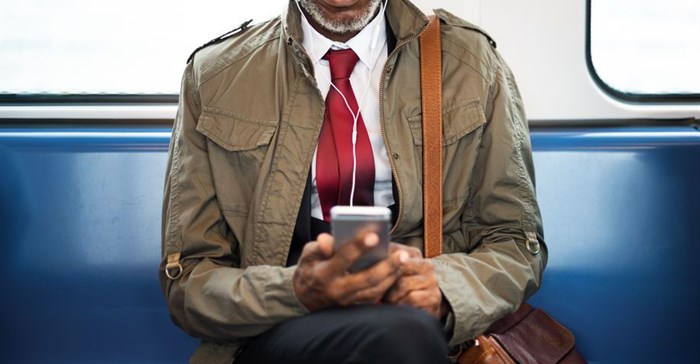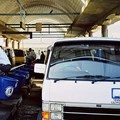Effective 2 April 2018, public transport fares increased by 5% from Rwf20 to Rwf22 per kilometre in the City of Kigali while passengers travelling from one town to another will part away with Rwf21 per kilometre, a 7% increase.
The new fares, announced by Rwanda Utilities Regulatory Authority (Rura) were done after a comprehensive study of the industry, the regulator said during a press conference recently.
The rising transport fares have been caused by the increasing petroleum products on the international market, the cost of vehicle insurance and investments done to boost the quality of public transport in Rwanda.
Engineer Emmanuel Asaba Katabarwa, the head of transport department at Rura, revealed to the press that the new fares came as a result of the many changes that have happened since 2015.
Marcus Mayers, David Bamford 12 Mar 2018 "Fares have increased because there has been an increase in prices of petroleum products, the move to reduce speeding vehicles through the use of speed governors, the tap-and-go technology in public transport and the increase in car insurance fees for public transport," said Asaba.
According to Asaba, the tariff setting process is a normal regulatory exercise. The last tariff review was in November 2015 and it was agreed that the set tariffs shall be reviewed after two years or if the fuel pump price exceeded Rwf959 or goes below Rwf817.
The tariff review process was initiated in November last year, two years after the previous tariffs setting, and thereafter the fuel pump price exceeded the set threshold.
"The last tariff was set three years ago, since then, the industry has seen many developments leading to the increase in operational costs. We have fairly increased fares to ensure mutual benefits between operators and passengers," he said.
According to the cooperative secretary of ATPR Eric Ruhamiriza, the increase in fares has been welcomed seeing the kind of service they are offering and the amount of money they have invested.
"We appreciate Rura's decision to increase the fare because we have invested so much and we always work hand in hand with the regulatory body. We have had discussions about an increase in fuel prices to speed governors that have been installed in passenger buses," said Ruhamiriza.
Rise in fuel prices
Usually, when the exchange rate of the currency, for example, a dollar has fluctuated due to political uncertainty and the possible downgrade of a country from credit rating agencies or an increase in the amount of tax paid towards petrol, in particular, the fuel levy will lead to an increase in the price of fuel.
Also, the rise of the oil price has contributed most significantly to the rise of the petrol price. It will also result in the rise of transport and food costs.
According to Dr Benjamin Rutimirwa, in charge of economic regulation at Rura, alternating prices of petroleum products doesn't mean that fares in transport will keep on changing.
"While determining the transport fare, we set Rwf1,200 per litre as a determinant in trying to set a price," Rutimirwa noted.
Use of speed governors
In September 2016, the government officially launched the installation and use of speed governors in public and commercial vehicles in an attempt to curb road carnage resulting over speeding.
The hi-tech device limits vehicles to a maximum speed of 60 kilometres per hour and has the capacity to trim down the speed to 25 kilometres per hour every time the vehicle attempts to exceed the set maximum velocity.
It also has a storage computer which allows controllers or traffic offices to check the previous speed of the vehicle, and errors if the device was tampered with.
Operators claim that even after the number of licensed suppliers rose to five, the high cost of speed governors increased the amount of money invested in the transport sector thus calling for an increase in fares.
Prices of speed governors range between Rwf180,000 and Rwf260,000 depending on the technology and the supplier.
Use of ICT in transport
Rwanda is promoting the use of different technology-based tools and facilities as it moves to achieve its cashless economy target in the medium-term. The push toward digital has seen a number of service providers, including the public transport sector, embrace e-payment and e-commerce tools.
The move by city public transport bus firms to adopt 'tap-and-go' the e-bus fare payment system has been, for instance, touted to decrease time spent haggling and waiting for change, promote road safety and boost operators' revenues, among others.
Unveiled about two years ago, e-payment of public transport fares is part of the Smart Kigali initiative meant to improve services in Rwanda.
Buses connected to 4G internet
As part of the broad Smart Kigali initiative, more than 400 buses were connected to 4G internet connection, which allows passengers on board to have full access to free, super-fast internet.
More than 487 buses belonging to Kigali Bus Services, Royal Express and Rwanda Federation of Transport Cooperative (RFTC) had been fitted with special-purpose internet devices.
Yeukai Karengezeka 22 Feb 2018 This made Kigali the first city not only in the region but also across the continent to provide citizens with the wireless internet in public transport.
According to passengers, the wireless provides genuine benefits to people on the move in terms of business continuity, entertainment, and staying connected.
Be it responding to that email to close a deal, not missing your favourite team play or just catching up with friends and family. The world is moving fast and one can accomplish much without being bored on the bus.
After the changes in the public transport fares, Rura has increased routes by adding 16 more to the existing ones in the country.
Read the original article on New Times.














